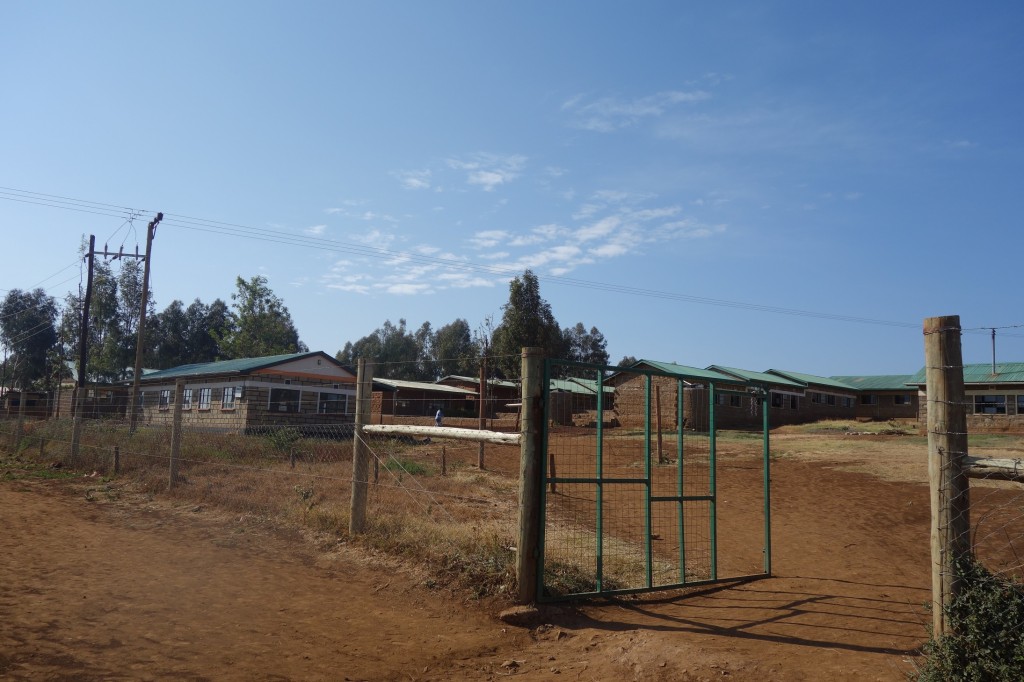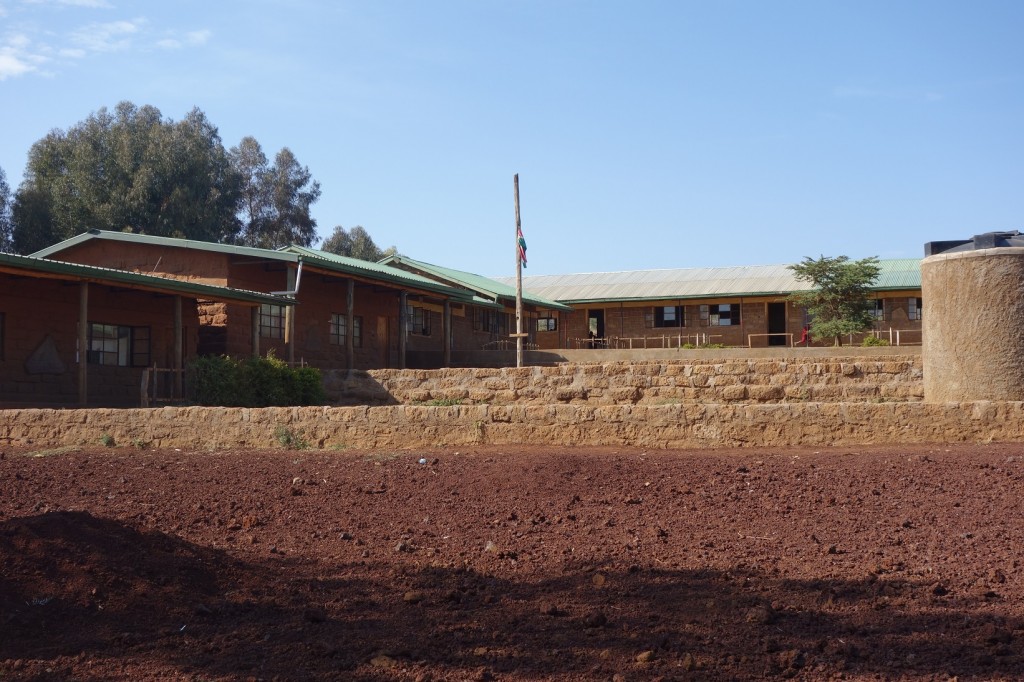My job here in Kenya is to work with the Northern Rangelands Trust’s (NRT) education program. The NRT currently works with 26 Community Conservancies. These Conservancies are self-governed entities that were admitted into the NRT after agreeing to implement specific governance, security and conservation activities (like elected local boards, cattle rustling prohibitions and anti-poaching measures). In return, the Conservancies receive money, training and services designed to improve their standard of living. That is where I come in. I am part of a project to develop a strategic plan for improving the access to education in the Northern Regions. I will blog more about that on another day.
The Lewa Conservancy established an education program, LEP (Lewa Education Program), in the late 90’s. My first task is to determine what the LEP is doing that is effective and can be replicated in the NRT. To do that I am visiting all 18 of the Lewa partnered schools and talking with the Principal (mostly), teachers, and students. I hear interesting stories. Here is one.
Subuiga is an area adjacent to the Lewa Conservancy. In 1999 Lewa sent rangers to Subuiga to round up all the wildlife and push it onto the protected Lewa grounds. They managed to get all the rhinos, elephants, giraffes, and others but two Zebras refused to cooperate. In fact they were being held back by the local community.
“Give us the two Zebras.” Lewa said.
“No!” was the response, “Pay us for them.”
“What do you need the money for?”
“We want to build a school.”
Lewa recognized that it was important to help the local communities if they were going to be successful in their primary mission of conservation, Lewa agreed to build the school.
In 1999 Subuiga Primary School opened. It had one classroom, a volunteer teacher, and 9 students in grade 1. The following year Lewa built a second classroom. They now had Grades 1 and 2 and 18 students.
In 2003 Subuiga Primary was assigned its first Government teacher. Its logo is a Zebra handing a book to a child.
But trouble reared its head. The school had been deeded 60 acres even though they only had 2 classrooms. Those 60 acres were also used by the community to graze cattle and shoats (sheep and goats). Eight to ten families maintained bomas (corrals) on school property, some near the school buildings.
During school the animals wandered around the classrooms distracting the students. The head teacher wanted them gone and began fighting with the community. He demanded that they remove their livestock. The community refused. Hard feelings grew.
In 2006 it ended up in court. Four families sued over the legality of the school deed. They wanted to maintain access to the land. At that time a new head teacher, Franklin Murithi, was hired. He had been there just a few weeks when he was summoned to court. He refused to go. Contacting the judge he arranged a meeting with himself, the families and the judge.
The families all had students in the school. Franklin said that this was strange. He was representing the needs of the students and the parents were suing the school. It was like a parent suing himself. It didn’t make since. The case was dropped and the owner of the closest boma agreed to move it. But the other bomas were still on the property.
After waiting for things to settle down for a couple of months Franklin decided the time was right to act. He went to the next boma and told the family that they would have to move it as well. They refused. By this time the school had 142 students, a small army. Franklin told the family that if they didn’t move the boma he would have the students come in on the weekend and tear it down stick by stick and scatter the cattle. He gave them two weeks.
Two weeks later all the bomas were gone!
Subuiga Primary now has 494 students and is going strong with Franklin Murithi at the helm.



This shows the difference that one person can make. John, I am sure you will make a difference too. I’m proud of you brother.
Is Franklin Murithi a native of the region? Does he know and understand the people? Is sounds as if he did. What he did was very agressive and assertive. Can you imagine something like that in our own neighborhoods with our own neighbor hood schools? Like just bullying the drug business out of our neighborhood and schools. Mr Murithi is a brave man who really cares about the children and his job as their educator.